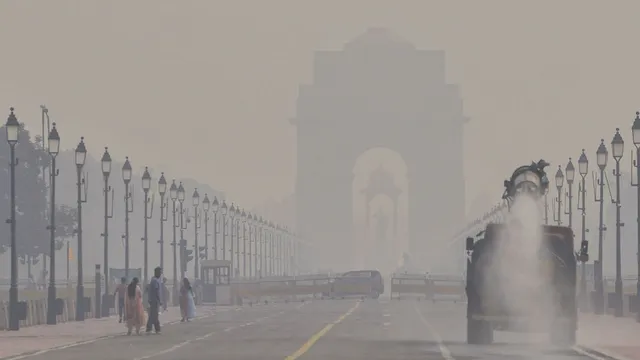- By Chetna Shree
- Fri, 31 Oct 2025 05:43 PM (IST)
- Source:JND
Delhi Air Pollution: Delhi-NCR is grappling with severe health crisis as thick smog blankets the national capital and the surrounding areas. A survey conducted by LocalCircles revealed that 75 per cent of households in Delhi-NCR currently have one or more members with Covid, flu, or viral fever-like symptoms.
The survey collected responses from more than 15,000 residents across Delhi, Gurugram, Noida, Faridabad, and Ghaziabad.
Doctors across Delhi-NCR report a steady increase in H3N2 influenza and other viral infections, with patients complaining of persistent fever, cough, sore throat, while recovery is taking more than 10 days.
ALSO READ: Delhi-NCR Air Pollution Hits Hard: Survey Reveals 3 In 4 Households Already Feeling Toxic Impact
“The virus is affecting children, the elderly, and those with pre-existing conditions the most,” the LocalCircles report stated.
Health Impact Soars Amid Worsening Air Quality
Earlier, a LocalCircles survey found that three in four households are reporting symptoms such as breathing difficulties, cough, sore throat, nasal congestion, burning eyes, and headaches, classic signs of exposure to air pollution.
Delhi NCR’s Rising Pollution Affects Majority Of Households
The LocalCircles survey highlights the ongoing health crisis amid rising pollution:
- 17 per cent of households have four or more unwell members.
- 25 per cent report two to three sick individuals.
- 33 per cent have one affected person.
- Only 25 per cent of households reported that everyone in the family is healthy.
“Delhi’s residents are facing a double whammy. Seasonal viral infections have coincided with dangerously high pollution, making recovery harder and increasing vulnerability to respiratory illness,” the report said.
Hospitals in the region are witnessing a surge in patients, complaining of throat irritation, wheezing, chest tightness, and worsening of pre-existing health conditions. Some of the hospitals have set up dedicated wards to manage the influx of affected patients.
“The need of the hour is not just cleaner air, but a coordinated public health response,” the report added. According to the Central Pollution Control Board (CPCB) data, Delhi’s 24-hour Air Quality Index (AQI) was recorded at 373, entering the “very poor” category, up from 279 (“poor”) the previous day.

